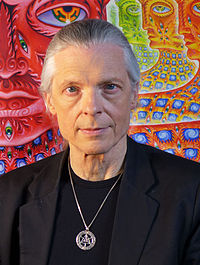
Photo from wikipedia
Phenomenological studies suggest the existence of enhanced cognitive states, termed flow or peak experiences, in which specific cognitive processes (e.g., attention, perception) can be dramatically increased for limited durations. Here… Click to show full abstract
Phenomenological studies suggest the existence of enhanced cognitive states, termed flow or peak experiences, in which specific cognitive processes (e.g., attention, perception) can be dramatically increased for limited durations. Here we review new scientific evidence that shows that specific types of meditation that developed out of certain religious traditions such as Vajrayana (Tantric Buddhism) and Hindu Tantra lead to the enhanced cognitive states, characterized by heightened sympathetic activation and phasic alertness (a significant temporary boost in focused attention). This is in contrast to the meditation practices (Shamatha, Vipassana) from other traditions such as Theravada and Mahayana that elicit heightened parasympathetic activity and tonic alertness. Such findings validate Buddhist scriptural descriptions of heightened arousal during Vajrayana practices and a calm and alert state of mind during Theravada and Mahayana types of meditation. The finding demonstrates the existence of enhanced cognitive states—the unique and energized states of consciousness characterized by a dramatic boost in focused attention.
Journal Title: Journal of Religion and Health
Year Published: 2019
Link to full text (if available)
Share on Social Media: Sign Up to like & get
recommendations!